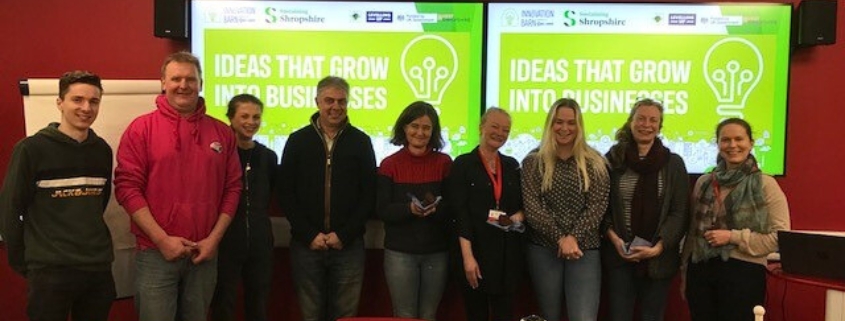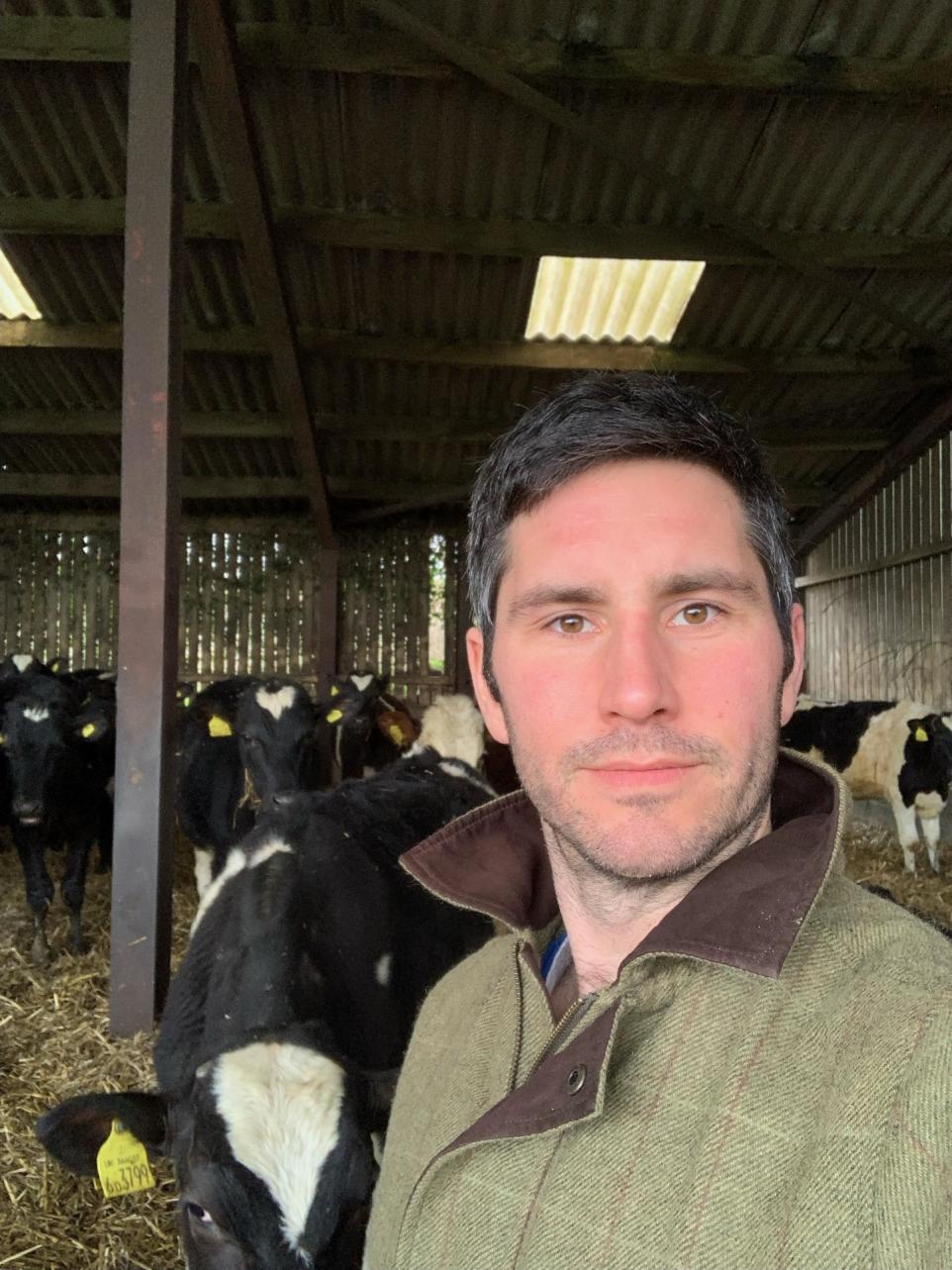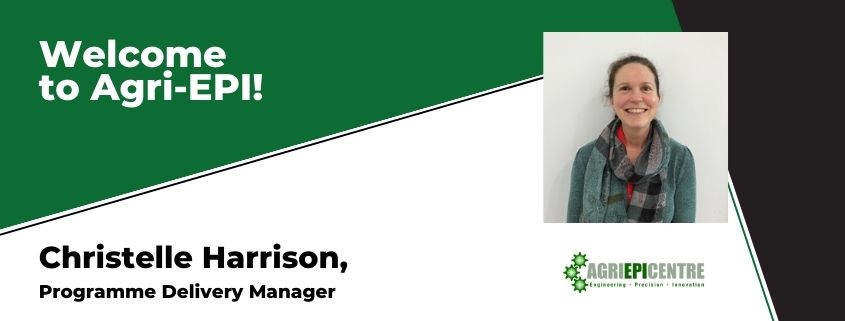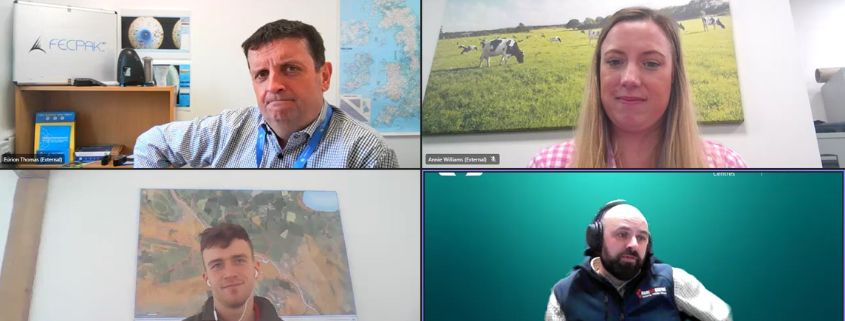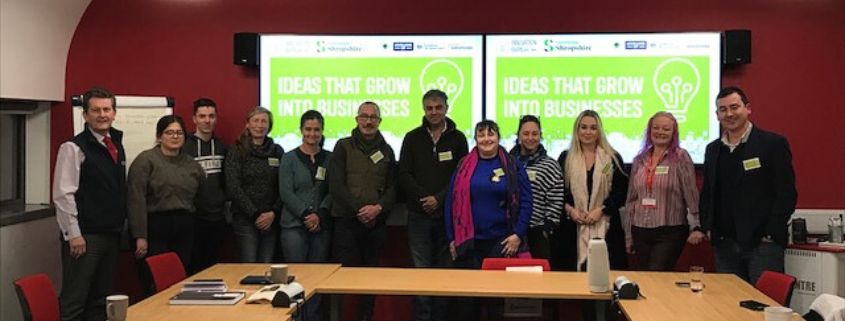
To celebrate the first cohort of the Sustaining Shropshire Start-up Programme reaching the half-way point, we reflect on the sessions and insights gained throughout the programme so far.
The Start-up Programme delivered by Agri-EPI Centre as part of the wider Sustaining Shropshire project in collaboration with Harper Adams University and the School of Sustainable Food and Farming, provides free structured support in 8 weekly sessions to aspiring entrepreneurs and start-up businesses in Shropshire’s agri-tech, agri-food and drink, and supply chain sectors. The programme aims to upskill entrepreneurs with the knowledge and confidence that will grow their business.
Week 1 – Introductions
The structured programme began in January, with a warm welcome and introductions from those delivering the project and project partners including Wendy Hewitson from the Agri-EPI Centre, Rebecca Greenhalgh and Melissa Sambrook from Harper Adams University, and Alex Hardie from the School of Sustainable Food and Farming.
During this session, we also heard a success story from Luke Boxall, who shared his inspiring start-up journey after previously completing a similar project with Harper Adams University. Luke highlighted the valuable skills and knowledge he gained throughout the project that enabled him to change careers and start his own company Soil Nurture, an agri-business that helps farmers and growers to reduce chemical inputs by improving soil and plant health with worm by-products.
Week 2 – Business plans
Week 2 of the programme focused on the intricacies of business plans, where the delegates received an insight into different types of business plans, their purpose, and their components. This session also introduced a toolkit of analysis techniques such as PESTLE for external business factors, and the importance of setting SMART goals throughout their entrepreneurial journey.
Week 3 – Value propositions
Week 3 was led by an external speaker, Dr Matthew Rogers-Draycott, an entrepreneurship educator and business coach, who delivered a thought-provoking session on defining value propositions. During this session, the cohort dived into the consideration of value creation from target user challenges, and the benefits created from product features in competitive landscapes.
Christelle Harrison, the Programme Delivery Manager, said:
“The first round of the Start-up Programme has been very successful where we have been able to support a diverse range of agri-tech, food, and drink entrepreneurs, who are being guided by subject and sector experts to gain new skills that will support their business journey. The cohort is progressing well and embracing the programme’s networking and knowledge sharing opportunities.”
Week 4- Finances
To mark the halfway point, week 4 examined the importance of finance and accounting, led by Mark Yates from Fair Oak Accounting. Mark provided valuable knowledge and tips around how entrepreneurs can navigate finance management in their start-ups including tax regulations and record keeping. He also highlighted the benefits of seeking professional advice to guide financial decisions to meet regulations.
As week 5 approaches, we look forward to continuing to support aspiring entrepreneurs, equipping them with the vital skills and knowledge to build their business journey.
The Start-up Support Programme is delivered over 8-weeks, with the next cohorts commencing on May 8th 2024, and September 11th 2024. For more information about the programme and to register your expression of interest, click here.
Sustaining Shropshire is a collaborative project with Harper Adams University, the School of Sustainable Food and Farming, and the Agri-EPI Centre. It is dedicated to providing free expert support to Shropshire’s entrepreneurs, pre-trade, start-up agri-tech, agri-food and drink, and supply chain businesses to boost their sustainability, creativity, productivity, and efficiency. The project is funded by the Shropshire Council through the Government’s UK Shared Prosperity fund and will run until March 2025.

